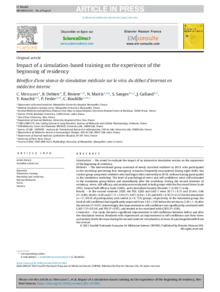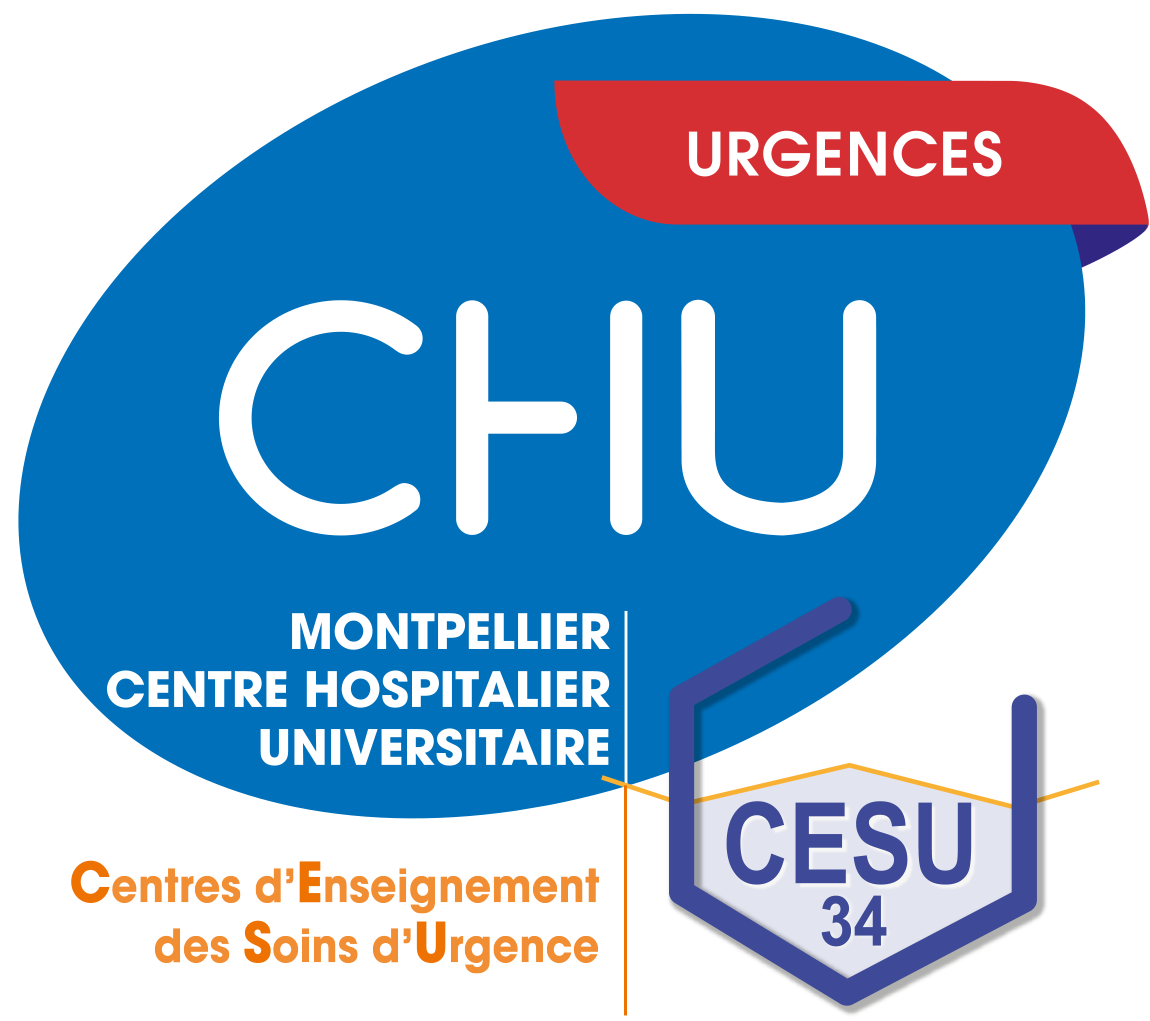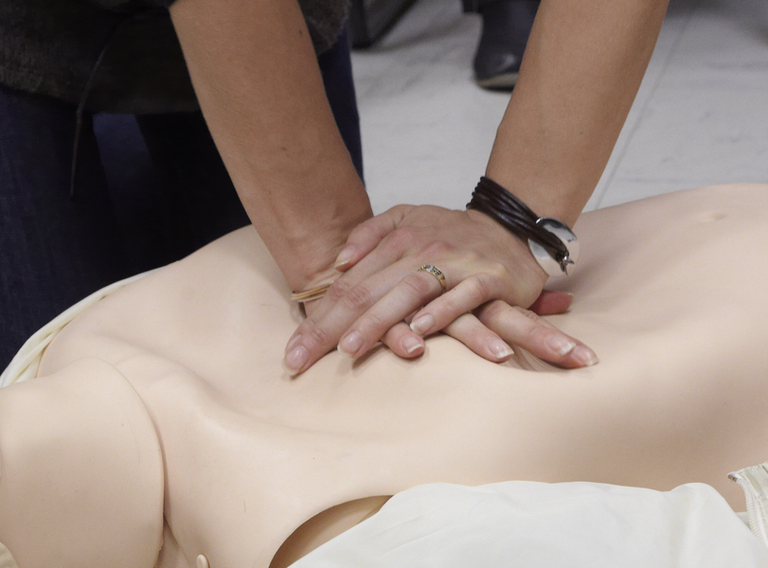
CESU [Pédagogie]
Bénéfice d’une séance de simulation médicale sur le vécu du début d’internat enmédecine interne
1 documentPublié le
Benefice-d-une-seance-de-simulation-medicale-sur-le-vecu-du-debut-d-internat-enmedecine-interne.pdf (.pdf, 171,7 Ko)
Introduction. – We aimed to evaluate the impact of an immersive simulation session on the experienceof the beginning of residency.
Methods. – The interventional group consisted of newly recruited residents in 2019, who participatedin the workshop presenting four emergency scenarios frequently encountered during night shifts; thecontrol group comprised residents who had begun their internship in 2018, without having participatedin the simulation workshop. The level of psychological stress and self-confidence were self-estimatedin the simulation group before and immediately after the workshop. During the second semester ofresidency, stress, self-efficacy and anxiety were evaluated in both groups with the Perceived Stress Scale(PSS), General Self-efficacy Scale (GSES), and Generalized Anxiety Disorder-7 (GAD-7) scale.Results. – In the second semester 2020, the PSS, GSES and GAD-7 were 20.71 ± 8.15 and 22.44 ± 5.68(P = 0.40); 26.88 ± 6.30 and 27.11 ± 3.95 (P = 0.87); 6.94 ± 5.25 and 8.89 ± 4.78 (P = 0.22) for the simulation(n = 17, 89.5% of participation) and control (n = 9, 75%) groups, respectively. In the simulation group, thelevel of self-confidence had significantly improved from 1.82 ± 0.95 before the session to 2.29 ± 1.16 afterthe session (P = 0.05). Interestingly, this improvement in self-confidence was significantly correlated withGAD-7 (P = 0.014) and PSS (P = 0.05), and tended to be correlated with GSES (P = 0.09).Conclusion. – Our study showed a significant improvement in self-confidence between before and afterthe simulation session. Residents who experienced an improvement in self-confidence saw their stressand anxiety levels decrease during the second semester reevaluation, in favor of a prolonged benefit fromthe session.


